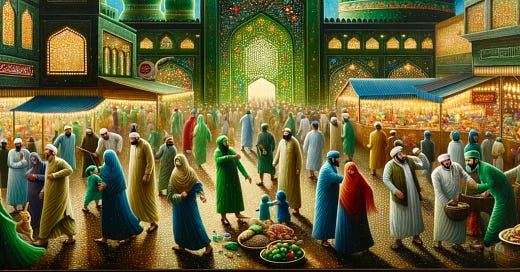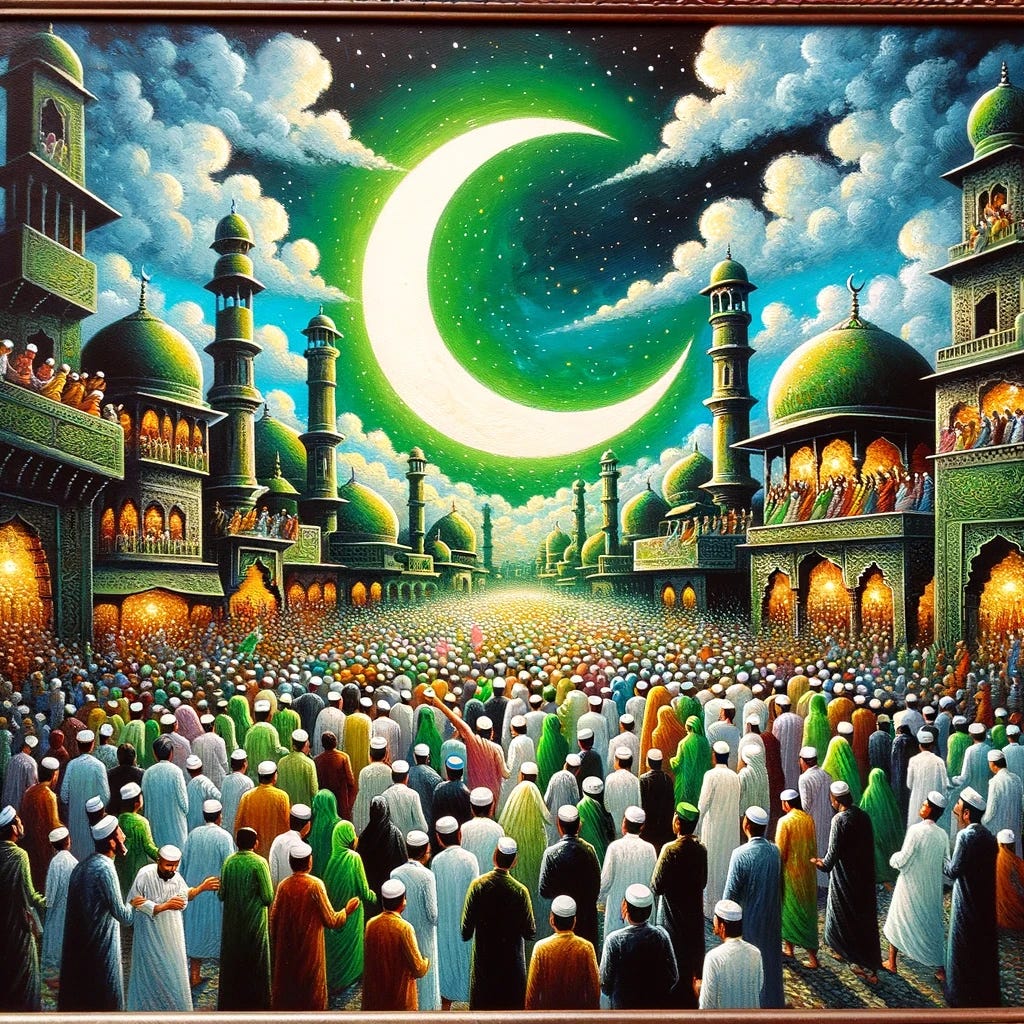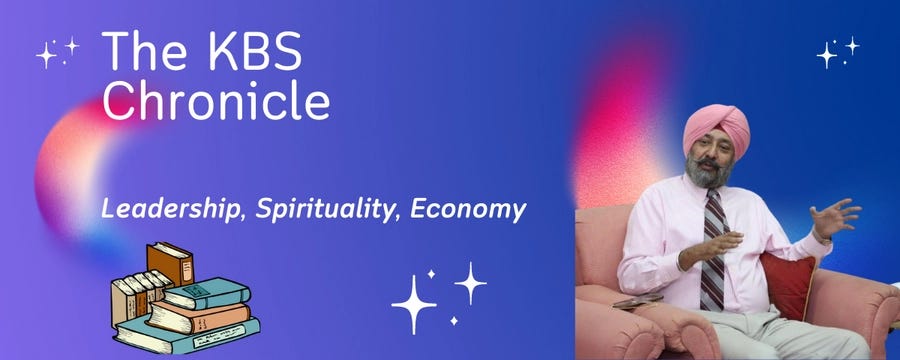Eid-ul-Fitr: A Celebration of Peace and Unity
Heartiest felicitations to our Muslim brethren all across the world, on this auspicious occasion.
Eid-ul-Fitr: A Celebration of Peace and Unity
Eid-ul-Fitr, marking the conclusion of the rigorous fasting—and sumptuous feasting—of Rozas during the month of Ramadan (Ramazan), is a significant and joyous occasion celebrated by Muslims worldwide. As we wish our Muslim brethren all across the globe on the occasion of Eid-ul-Fitr, this festival signifies the end of Ramadan, the Islamic holy month of fasting. Scheduled for the 10th of April this year, Eid-ul-Fitr not only concludes the final day of Ramadan but also heralds a day of festivity, reflection, and unity. In India, where society is woven with threads of diverse religions and cultures, Eid-ul-Fitr is observed with profound respect and participation by the non-Muslim majority, symbolising the nation's ethos of harmony and brotherhood.
The Essence of Ramadan and Fasting
Ramadan, the ninth month of the Islamic lunar calendar, is considered the holiest month by Muslims. It commemorates the first revelation of the Quran to Prophet Muhammad (PBUH), making it a period of profound spiritual significance. Fasting from dawn until sunset is ordained in the Quran and is one of the Five Pillars of Islam, essential practices that form the foundation of a Muslim's faith and actions. The fast, known as 'Sawm,' involves abstention from eating, drinking, smoking, and sinful behavior. It's a time for self-examination, spiritual reflection, and drawing closer to Allah.
The practice of fasting during Ramadan was established by Prophet Muhammad (PBUH) and is believed to bring the faithful closer to God and to remind them of the suffering of the less fortunate, fostering empathy and charity.
Celebrating Eid-ul-Fitr
Eid-ul-Fitr commences with the sighting of the new moon, marking the end of Ramadan. The celebration begins after the final iftar, the meal that breaks the day's fast, with the next day dedicated to the festival. Preparations for Eid include the cleansing of the body, known as "Ghusl," performing the special congregational Eid prayer in the morning, and the giving of charity, known as "Zakat al-Fitr," to ensure that the needy can also celebrate the festival.
Traditions and Practices
One of the most cherished traditions of Eid is the wearing of new clothes, symbolizing renewal and purity. Families gather to share meals, with sweet dishes, especially "Seviyan" (sweet vermicelli), being a highlight, earning Eid-ul-Fitr the affectionate nickname "Meethi Eid" or "Sweet Eid" in parts of the Indian subcontinent.
Charity is a significant aspect of the celebration, emphasizing support for the less fortunate. It reflects the spirit of generosity and brotherhood that Ramadan cultivates in the hearts of the faithful.
Eid Beyond Fasting
Eid-ul-Fitr is not just a celebration marking the end of fasting but a day that encapsulates the ethos of gratitude, compassion, and community. It stands as a reminder to Muslims and non-Muslims alike of the universal values of peace, unity, and the shared joy of humanity's diverse traditions.
In India, Eid-ul-Fitr goes beyond religious boundaries, becoming a beacon of communal harmony and mutual respect. Friends and families of different faiths partake in the celebrations, exchanging sweets and greetings, reinforcing the country's rich tapestry of cultural confluence.
A Unifying Message
Eid-ul-Fitr carries with it a message of universal peace and harmony, transcending the boundaries of religion. It calls upon everyone to reflect on the common values that unite us as a human family: empathy, compassion, and the pursuit of peace.
In passing, it's noteworthy to mention that Eid-ul-Fitr is one of the two major Islamic festivals, the other being Eid-ul-Adha or Bakr-Id, which is marked by the sacrifice of an animal in remembrance of Abraham's willingness to sacrifice his son in obedience to God. There is also Eid Milad-un-Nabi, celebrating the birth of Prophet Muhammad, highlighting the diversity and depth of Islamic celebrations.
As India, a land of unparalleled diversity, prepares to celebrate Eid-ul-Fitr, it stands as a testament to the nation's enduring spirit of unity in diversity. Eid-ul-Fitr, in essence, is not just a celebration for Muslims but a festival for all Indians, embodying the values of brotherhood, peace, and communal harmony.






